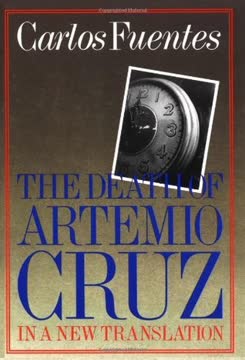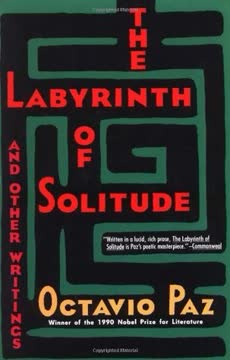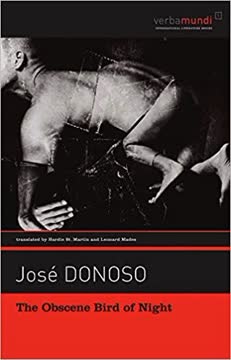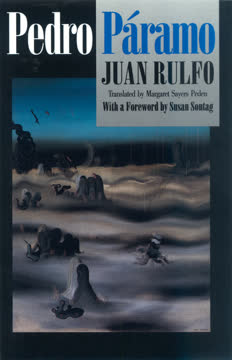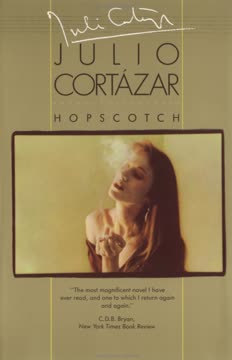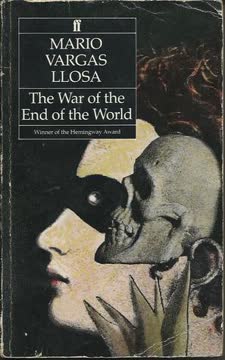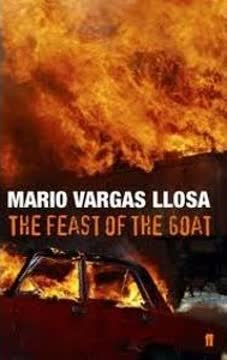Plot Summary
Deathbed Awakening
The novel opens with Artemio Cruz, a powerful and wealthy Mexican, lying on his deathbed. His body is failing, and he drifts in and out of consciousness, surrounded by his estranged wife Catalina, his resentful daughter Teresa, and other figures from his life. The narrative is fragmented, moving between first, second, and third person, reflecting Cruz's disorientation and the dissolution of his identity. As doctors and priests attend to him, Cruz resists their ministrations, clinging to pride and refusing to show vulnerability. The physical decay of his body mirrors the moral and emotional decay that has marked his life. The opening establishes the central motif: a man confronting the sum of his choices, haunted by regret, pride, and the knowledge that his power cannot save him from death.
Fractured Reflections
Cruz's mind wanders through memories, each one a shard of his past, refracted through pain and delirium. He sees himself in mirrors, in the faces of others, and in the broken relationships that define his existence. The narrative structure mimics this fragmentation, leaping between time periods and perspectives. Cruz's identity is not a coherent whole but a collage of roles: revolutionary, lover, husband, father, tycoon, traitor. The disjointed narrative underscores the impossibility of reconciling these selves, and the futility of seeking redemption at the end. Cruz's reflections are tinged with bitterness, as he recognizes the cost of his ambition and the emptiness of his victories.
The Revolution's Promise
As a young man, Cruz joins the Mexican Revolution, driven by hope for justice and change. He fights bravely, forms bonds with fellow soldiers, and falls in love with Regina, a woman whose purity and passion embody the Revolution's promise. Yet, the violence and betrayals of war erode his ideals. He witnesses the execution of comrades, the suffering of the poor, and the rise of new oppressors. The Revolution, meant to liberate, becomes a vehicle for personal gain and power. Cruz's choices—sometimes cowardly, sometimes ruthless—set him on a path away from idealism, foreshadowing the compromises and betrayals that will define his later life.
Love and Loss: Regina
Regina is the great love of Cruz's life, a relationship marked by passion, tenderness, and tragedy. Their time together is brief but transformative, offering Cruz a glimpse of happiness and wholeness. Regina's death—killed as collateral in the violence of the Revolution—becomes the central wound of Cruz's existence. He survives, but at the cost of his soul. The memory of Regina haunts him, a symbol of what might have been, and a reminder of the innocence and love he sacrificed for survival and ambition. Her loss is the axis around which his regrets revolve.
The Price of Survival
Cruz's life is a series of choices made in the name of survival. He betrays friends, lovers, and ideals, rationalizing each act as necessary. In a pivotal moment, he chooses to save himself at the expense of others, cementing his reputation as a man who will do anything to live. This pragmatism brings him wealth and power, but also isolation and guilt. The narrative explores the psychological toll of these choices, as Cruz becomes increasingly alienated from those around him and from his own sense of self. Survival, in Fuentes's vision, is both a triumph and a curse.
Marriage and Betrayal
After the Revolution, Cruz marries Catalina, the daughter of a wealthy landowner, not for love but for social advancement. Their marriage is fraught with resentment, unspoken grievances, and emotional distance. Catalina, once proud and strong, is diminished by Cruz's indifference and infidelity. Their relationship becomes a battleground of pride and pain, with both partners unable to forgive or connect. The marriage produces children, but also perpetuates cycles of betrayal and disappointment. Cruz's inability to love or be loved is both a personal tragedy and a metaphor for the failures of the new Mexican elite.
Building an Empire
Cruz leverages his revolutionary credentials and marriage into a vast fortune. He becomes a media mogul, landowner, and political fixer, manipulating the levers of power for personal gain. His business dealings are marked by corruption, exploitation, and alliances with foreign interests. Cruz's rise mirrors the transformation of Mexico itself, from revolutionary fervor to oligarchic stagnation. The narrative details his ruthless methods, his contempt for the poor, and his cynical view of politics. Yet, beneath the bravado, Cruz is haunted by the knowledge that his empire is built on sand, and that his power cannot shield him from loss or mortality.
Family and Estrangement
Cruz's relationships with his wife, daughter, and son are poisoned by his emotional absence and moral ambiguity. Teresa, his daughter, despises him, seeing only the tyrant and hypocrite. Catalina, his wife, is trapped in a loveless marriage, clinging to pride and religion for solace. Cruz's son, Lorenzo, is sent to fight in the Spanish Civil War, a gesture that is both an act of love and a repetition of Cruz's own youthful idealism. The family is united only by mutual disappointment and the pursuit of inheritance. Cruz's deathbed is not a place of reconciliation, but of unresolved grievances and unspoken truths.
The Corruption of Power
As Cruz amasses wealth and influence, he becomes increasingly corrupt, both morally and politically. He manipulates unions, bribes officials, and suppresses dissent. His newspaper becomes a tool for propaganda and personal vendettas. Cruz's power isolates him, breeding paranoia and cynicism. He is surrounded by sycophants and opportunists, unable to trust or be trusted. The narrative exposes the hollowness of his achievements, as each act of domination brings only temporary satisfaction and lasting regret. Power, in Fuentes's vision, is a trap that consumes those who wield it.
The Ghosts of the Past
As death approaches, Cruz is beset by memories of those he has lost or betrayed: Regina, his comrades, his son, his own youthful self. The past intrudes on the present, blurring the boundaries between memory and reality. Cruz's mind replays moments of love, violence, and cowardice, seeking meaning or absolution. Yet, the ghosts offer no comfort, only reminders of what has been squandered. The narrative suggests that the past cannot be escaped or redeemed, only endured. Cruz's final hours are a reckoning with the sum of his choices.
The Next Generation
Cruz's children, especially Lorenzo, represent the possibility of renewal or repetition. Lorenzo's decision to fight in Spain echoes Cruz's own revolutionary past, but ends in tragedy. The younger generation is caught between the legacy of their father's ambition and the emptiness of his achievements. The inheritance Cruz leaves is not just material wealth, but a pattern of pride, betrayal, and disillusionment. The novel questions whether true change is possible, or whether each generation is doomed to repeat the failures of the last.
The Weight of Memory
Throughout the novel, memory is both a source of pain and a means of survival. Cruz clings to memories of love and youth, even as they torment him. The act of remembering becomes a way to assert identity in the face of death, to claim some measure of meaning in a life marked by compromise. Yet, memory is also unreliable, selective, and shaped by regret. The novel suggests that to live is to betray, and to remember is to suffer. In the end, memory is all that remains, a fragile bulwark against oblivion.
The Final Reckoning
As Cruz's body fails, he confronts the ultimate questions: Was it worth it? What does it mean to live, to love, to betray, to die? The narrative offers no easy answers. Cruz's final moments are marked by pain, confusion, and a desperate longing for connection. He seeks forgiveness, but cannot ask for it; he desires love, but cannot give it. The priest's last rites, the family's tears, the legal wrangling over his will—all are hollow rituals. Cruz dies as he lived: alone, proud, and unresolved.
The Inheritance of Mexico
Cruz's life is a microcosm of modern Mexico: revolutionary hope corrupted by power, idealism supplanted by cynicism, the promise of change betrayed by self-interest. The novel ends with a meditation on the legacy Cruz leaves behind—not just to his family, but to his country. The wealth, the land, the institutions, the culture of machismo and corruption—all are part of the inheritance. Fuentes suggests that the cycle of betrayal and disappointment is not just personal, but national. The challenge is whether future generations can break free.
The End of the Line
In the final pages, Cruz's consciousness dissolves. The narrative voice shifts, encompassing not just Cruz but the generations before and after him. The boundaries between self and other, past and present, life and death, blur and fade. The novel closes with a sense of exhaustion, but also of release. Cruz's death is both an ending and a beginning, a moment of judgment and the possibility of renewal. The story of Artemio Cruz is over, but the story of Mexico—and of those who inherit his legacy—continues.
Characters
Artemio Cruz
Artemio Cruz is the central figure, a man whose life spans the Mexican Revolution and the rise of modern Mexico. Born poor and illegitimate, he becomes a revolutionary, then a wealthy tycoon, media mogul, and political manipulator. Cruz is defined by his will to survive at any cost, his capacity for betrayal, and his inability to love or be loved. Psychologically, he is a study in pride, guilt, and alienation. His relationships—with lovers, family, and comrades—are marked by exploitation and disappointment. As he dies, Cruz is forced to confront the emptiness of his achievements and the pain of his memories. His journey is both personal and emblematic of a nation's lost ideals.
Regina
Regina is Cruz's great love, a woman whose passion and purity represent the hope and idealism of the Revolution. Her relationship with Cruz is brief but transformative, offering him a glimpse of happiness and redemption. Her death is the central trauma of Cruz's life, a wound that never heals. Regina's memory haunts Cruz, embodying the innocence and love he sacrificed for survival and ambition. She is both a real person and a symbol of what Mexico—and Cruz—might have been.
Catalina
Catalina is Cruz's wife, the daughter of a wealthy landowner. Their marriage is loveless, marked by resentment, pride, and emotional distance. Catalina is both victim and participant in the cycles of betrayal that define their family. She clings to pride and religion, seeking solace in rituals and memories. Her relationship with Cruz is a battleground, with both partners unable to forgive or connect. Catalina's psychological complexity lies in her simultaneous dependence on and hatred for Cruz, and her inability to break free from the past.
Teresa
Teresa is Cruz's daughter, a figure of bitterness and disappointment. She despises her father for his hypocrisy and emotional absence, and her relationship with her mother is strained by mutual resentment. Teresa's life is shaped by the legacy of her father's ambition and the emptiness of his achievements. She is both a victim and a perpetuator of the family's dysfunction, unable to escape the patterns of pride and betrayal that define her inheritance.
Lorenzo
Lorenzo is Cruz's son, sent to fight in the Spanish Civil War. He represents the possibility of renewal, the hope that a new generation might break free from the cycles of the past. Yet, his fate mirrors that of his father: idealism crushed by violence and betrayal. Lorenzo's death is both a personal tragedy and a symbol of the failure of revolutionary dreams. His story underscores the novel's central question: can the next generation escape the legacy of their parents?
Padilla
Padilla is Cruz's trusted aide, the man who manages his business affairs and records his thoughts. He is both a servant and a potential successor, privy to Cruz's secrets and schemes. Padilla's loyalty is pragmatic, rooted in self-interest as much as affection. He represents the new class of technocrats and fixers who thrive in the world Cruz has created. Psychologically, Padilla is a mirror of Cruz: competent, cynical, and ultimately alone.
Don Gamaliel Bernal
Don Gamaliel is Catalina's father, a relic of the pre-revolutionary elite. He is cultured, proud, and ultimately powerless in the face of social change. His interactions with Cruz are marked by mutual suspicion and grudging respect. Don Gamaliel's decline mirrors the fall of the old aristocracy, and his attempts to preserve dignity in defeat highlight the costs of pride and tradition.
Gonzalo Bernal
Gonzalo is Catalina's brother and a revolutionary idealist. His execution is a pivotal event, shaping the destinies of both Cruz and Catalina. Gonzalo represents the possibility of selfless action and the tragedy of idealism betrayed. His memory haunts both Cruz and Catalina, a reminder of what was lost in the pursuit of power.
Lilia
Lilia is Cruz's young mistress in his later years, a figure of sensuality and transience. Their relationship is transactional, marked by mutual use and emotional emptiness. Lilia's presence underscores Cruz's inability to find lasting connection or satisfaction, and her eventual departure is another reminder of the impermanence of pleasure and the inevitability of loss.
Lunero
Lunero is the mulatto who raises Cruz as a boy, teaching him survival and resilience. He represents the world of the poor and marginalized, the forgotten origins that Cruz seeks to escape but can never fully deny. Lunero's love and sacrifice are among the few genuine acts of kindness in Cruz's life, and his memory is a touchstone for the boy Cruz once was.
Plot Devices
Nonlinear Narrative and Shifting Perspectives
Fuentes structures the novel as a series of nonlinear, interwoven episodes, moving back and forth across Cruz's life. The narrative shifts between first, second, and third person, blurring the boundaries between subject and object, memory and reality. This fragmentation reflects Cruz's psychological disintegration and the impossibility of constructing a coherent self. The use of multiple perspectives allows the reader to inhabit Cruz's consciousness, to see the world through his eyes, and to experience the confusion and regret that mark his final hours.
Memory as Motif
The act of remembering is central to the novel, serving as both a means of survival and a source of suffering. Cruz's memories are selective, unreliable, and shaped by guilt and longing. The narrative returns again and again to key moments—Regina's death, betrayals, lost opportunities—underscoring the inescapability of the past. Memory is both a refuge and a prison, offering the possibility of meaning but also the certainty of pain.
Symbolism and Recurring Imagery
Fuentes employs recurring symbols—mirrors, windows, rivers, horses, the sea, the body in pain—to evoke the themes of identity, transition, and mortality. The physical decay of Cruz's body is mirrored by the moral decay of his life and the society he inhabits. The river crossing, for example, recurs as a symbol of transition, choice, and the irreversibility of fate.
Political and Historical Allegory
Cruz's life is explicitly linked to the history of modern Mexico, from the Revolution to the rise of the oligarchy. His personal betrayals and compromises are mirrored by the nation's trajectory, and his death is both an individual and a collective reckoning. The novel uses Cruz's story to explore the failures of the Revolution, the persistence of inequality, and the corruption of power.
Stream of Consciousness and Interior Monologue
Fuentes employs stream of consciousness and interior monologue to immerse the reader in Cruz's mind. The narrative is often disjointed, repetitive, and hallucinatory, reflecting the confusion and pain of dying. This technique allows for deep psychological exploration, revealing the contradictions, fears, and desires that drive Cruz.
Analysis
The Death of Artemio Cruz is a masterwork of Latin American literature, blending psychological depth with political critique. Through the life and death of Artemio Cruz, Fuentes explores the transformation of Mexico from revolutionary hope to oligarchic stagnation, and the ways in which personal ambition mirrors national tragedy. The novel is a study in the corrosive effects of power, the inescapability of the past, and the impossibility of redemption through wealth or pride. Fuentes's experimental narrative structure—fragmented, nonlinear, and polyphonic—mirrors the chaos of memory and the dissolution of self at the end of life. The book's central lesson is that to live is to betray, and that the price of survival is often the loss of love, innocence, and meaning. Yet, in the act of remembering, there is a possibility—however faint—of understanding, connection, and grace. The Death of Artemio Cruz remains a powerful warning against the seductions of power and the dangers of forgetting the ideals that once inspired change.
Last updated:
FAQ
Synopsis & Basic Details
What is The Death of Artemio Cruz about?
- A Dying Man's Reckoning: The novel chronicles the final hours of Artemio Cruz, a powerful and corrupt Mexican magnate, as he lies on his deathbed, his consciousness fragmented by pain and memory. His physical decay mirrors the moral compromises of his life.
- Mexico's Revolutionary Legacy: Through Cruz's non-linear recollections, the story traces his journey from a young, idealistic soldier in the Mexican Revolution to a ruthless, self-made millionaire, allegorically reflecting the nation's post-revolutionary disillusionment and the corruption of its ideals.
- Search for Meaning: Surrounded by his estranged family and business associates, Cruz grapples with his past choices, lost loves, betrayals, and the ultimate futility of his amassed power in the face of death, seeking a final, elusive understanding of his existence.
Why should I read The Death of Artemio Cruz?
- Masterful Narrative Experimentation: Carlos Fuentes employs a groundbreaking narrative structure, shifting between first, second, and third-person perspectives and non-linear timelines, offering a deeply immersive and challenging reading experience that explores the fluidity of identity and memory.
- Profound Psychological Depth: The novel delves into the complex psyche of its anti-hero, Artemio Cruz, revealing the intricate layers of pride, guilt, love, and cynicism that drive his actions and haunt his final moments, making for a compelling character study.
- Incandescent Social Commentary: Beyond the personal narrative, the book serves as a powerful and unflinching critique of post-revolutionary Mexico, exposing the corruption, class disparities, and betrayed ideals that shaped the nation, offering timeless insights into power and its corrosive effects.
What is the background of The Death of Artemio Cruz?
- Post-Revolutionary Disillusionment: The novel is set against the backdrop of 20th-century Mexico, specifically the aftermath of the Mexican Revolution (1910-1920), exploring how the initial revolutionary fervor and promises of social justice devolved into a new form of oligarchy and corruption.
- Fuentes's Political Critique: Carlos Fuentes, a prominent intellectual and diplomat, used the novel to critically examine the institutionalization of the Revolution and the rise of a new elite, like Cruz, who profited from the very ideals they once championed, reflecting a widespread disillusionment among Mexican intellectuals.
- Literary Boom Context: Published in 1962, the novel is a seminal work of the Latin American literary boom, characterized by its experimental narrative techniques, magical realism elements, and engagement with complex historical and political themes, influencing a generation of writers.
What are the most memorable quotes in The Death of Artemio Cruz?
- "Memory is satisfied desire.": This recurring phrase encapsulates Cruz's desperate attempt to find solace and meaning in his past, suggesting that true fulfillment is only attainable through the act of remembering, even if the memories are painful or fabricated.
- "To live is to betray your God. Every act in life, every act that affirms us as living beings, requires that the commandments of your God be broken.": This cynical yet profound statement reveals Cruz's core philosophy, justifying his ruthless actions as an inherent part of existence and a necessary defiance of conventional morality.
- "You are who you are because you knew how to fuck up other people and not let yourself get fucked over; you are who you are because you didn't know how to fuck up other people and you let yourself get fucked over.": This raw, visceral quote, part of the "fucked mother" motif, brutally distills Cruz's understanding of power dynamics and survival in Mexico, highlighting the brutal pragmatism that defined his life and the nation's trajectory.
What writing style, narrative choices, and literary techniques does Carlos Fuentes use?
- Polyphonic Narrative Voices: Fuentes employs a complex interplay of three distinct narrative voices: a first-person "I" (Cruz's immediate, dying consciousness), a second-person "you" (a judgmental, prophetic inner voice addressing Cruz), and a third-person "he" (an objective, historical chronicler), creating a multi-layered exploration of identity and memory.
- Non-Linear Chronology: The story jumps erratically between different periods of Cruz's life, often triggered by sensory details or fragmented thoughts, mirroring the chaotic and associative nature of a dying mind and challenging the reader to piece together the narrative.
- Symbolic Realism and Interiority: While grounded in historical reality, the prose is rich with symbolic imagery and delves deeply into Cruz's interior world, using stream-of-consciousness and internal monologues to reveal his psychological complexities and the subjective nature of his experiences.
Hidden Details & Subtle Connections
What are some minor details that add significant meaning?
- The Unlit Cigar: In the 1941 chapter, Artemio Cruz is described seesawing an unlit cigar between his lips until an American partner lights it for him. This subtle detail symbolizes his dependence on foreign capital and influence, even as he projects an image of self-made power, highlighting the economic subservience of the Mexican elite.
- Catalina's Stocking Repair: In the same 1941 scene, Catalina's mother instructs her to use saliva to mend a split in her stocking. This seemingly trivial act underscores the ingrained habits of maintaining appearances and the quiet desperation of the old aristocracy, even as their world crumbles around them, contrasting with Cruz's raw ambition.
- The "Fucked Mother" Motif: Beyond its shock value, the recurring phrase "fucked mother" (la chingada) is a deep cultural reference to Octavio Paz's The Labyrinth of Solitude, symbolizing Mexico's historical trauma, conquest, and the pervasive sense of betrayal and violation that underpins its national identity, which Cruz embodies.
What are some subtle foreshadowing and callbacks?
- The Mirror's Twin Reflection: From the very first page, Cruz sees his "sick twin" or "double" in reflections, foreshadowing the novel's central theme of fragmented identity and the internal conflict between the man he was and the man he became, culminating in the final, ambiguous merging of his selves.
- The River Crossing Motif: The image of crossing a river on horseback appears multiple times, notably with Regina ("That morning I waited for him with pleasure. We crossed the river on horseback.") and later with Lorenzo. This motif subtly foreshadows pivotal transitions, choices, and irreversible breaks in Cruz's life, often linked to moments of love or loss.
- The Unseen Rat Infestation: During the New Year's Eve party (1955), the narrator mentions the "hidden scurry of immense rats" in the foundations of Cruz's opulent Coyoacán home. This subtle detail foreshadows the decay and corruption underlying his empire, suggesting that despite outward appearances, his wealth is built on a foundation of rot and hidden threats.
What are some unexpected character connections?
- Padilla as Cruz's Shadow: Padilla, initially presented as a loyal administrator, is subtly revealed to be more than just a subordinate. Cruz's internal monologue suggests Padilla knows "everything" about his secrets and is being groomed as a successor, implying a deeper, almost symbiotic connection where Padilla embodies the pragmatic, amoral continuation of Cruz's legacy.
- The Shared "Fucked Mother" Identity: The novel implies a universal, almost genetic, connection through the "fucked mother" motif, suggesting that all Mexicans, regardless of class or role, are bound by this shared historical trauma and the resulting patterns of exploitation and survival, making even seemingly disparate characters like Cruz and the peasants fundamentally linked.
- Catalina's Unspoken Forgiveness: Despite her overt hatred, Catalina's final, trembling caress of Cruz's forehead, described as "fear and thankfulness, grateful that tenderness is overcoming fear," hints at a complex, unspoken connection and a moment of potential, albeit unacknowledged, forgiveness or understanding that transcends their bitter marriage.
Who are the most significant supporting characters?
- Lunero, the Mulatto Caretaker: Lunero is crucial as Cruz's surrogate father figure, representing a connection to his humble, indigenous origins and a life of simple, honest labor. His love and teachings are the few genuine influences on young Artemio, highlighting the path Cruz abandoned for power.
- Miguel, the Spanish Republican Soldier: Lorenzo's comrade in the Spanish Civil War, Miguel, embodies unwavering idealism and a pragmatic understanding of revolutionary struggle. His character serves as a foil to Cruz's later cynicism, showing a different path for revolutionary commitment and influencing Lorenzo's own tragic idealism.
- Don Pedrito, the Drunken Father: Artemio's biological father, Don Pedrito, is a pathetic figure of inherited decay and weakness. His inability to protect his family or land directly leads to Artemio's violent act of self-assertion, making him a pivotal, if weak, catalyst for Cruz's ruthless trajectory.
Psychological, Emotional, & Relational Analysis
What are some unspoken motivations of the characters?
- Artemio's Quest for Validation: Beyond mere wealth, Artemio Cruz's relentless accumulation of power and property is driven by a deep-seated need to validate his illegitimate birth and overcome the shame of his humble origins, constantly proving his worth to a society that initially rejected him. His internal monologue often returns to this struggle for recognition.
- Catalina's Pride as Self-Preservation: Catalina's coldness and rigid adherence to social decorum are not just disdain but a defense mechanism. Her "silent rancor" and refusal to yield to Cruz's advances are her only means of preserving a sense of self and dignity in a marriage where she feels bought and humiliated, as seen in her internal struggle: "I won't tell you. You conquer me at night. I conquer you during the day."
- Teresa's Inherited Resentment: Teresa's overt hatred for her father stems not only from his personal failings but also from an inherited sense of victimhood, a psychological burden passed down from Catalina. Her outbursts are a desperate attempt to assert agency and break free from the suffocating legacy of her parents' dysfunctional relationship.
What psychological complexities do the characters exhibit?
- Cruz's Duality of Cowardice and Bravery: Artemio Cruz constantly grapples with his own contradictory nature. He is capable of immense bravery in battle, yet also commits acts of profound cowardice, such as abandoning the wounded soldier. This internal conflict is a central psychological complexity, as he rationalizes his survival as a "general truth" where "cowardice and bravery" are two sides of the same coin.
- Catalina's Self-Imposed Martyrdom: Catalina's psychological state is marked by a complex blend of pride, religious piety, and a self-sacrificing martyrdom. She consciously chooses to "distill bitterness until he was poisoned" as a form of revenge, yet simultaneously seeks solace in God and her children, creating a tormented inner world where love and hate are inextricably linked.
- Lorenzo's Echoing Idealism: Lorenzo's decision to fight in the Spanish Civil War is a complex psychological echo of his father's youthful idealism, yet it also represents his own search for meaning and a desire to escape the moral compromises of his family. His tragic fate highlights the cyclical nature of idealism and disillusionment across generations.
What are the major emotional turning points?
- Regina's Death and Cruz's Despair: The discovery of Regina's body, hanging from a rope, is the most profound emotional turning point for Cruz. It shatters his youthful idealism and capacity for genuine love, transforming him from a passionate soldier into a cynical survivor. His subsequent embrace of the "beautiful lie" of their meeting on the beach underscores his emotional retreat.
- Catalina's Forced Marriage and Internal Rebellion: Catalina's emotional turning point occurs when her father, Don Gamaliel, forces her to marry Cruz to save the family's fortune. Her internal decision to "kill him in life, distilling bitterness until he was poisoned" marks her shift from a passive victim to an active, albeit silent, avenger, shaping the entire dynamic of their marriage.
- Artemio's Abandonment of the Wounded Soldier: The moment Artemio leaves the wounded Yaqui soldier to save himself in the canyon is a critical emotional turning point. It solidifies his pragmatic, self-serving nature and introduces a deep-seated guilt that he attempts to suppress, yet which resurfaces in his dying moments, revealing the true "price to be paid for surviving."
How do relationship dynamics evolve?
- Cruz and Regina: From Passion to Myth: Their relationship begins with raw, uninhibited passion and mutual devotion, a rare instance of genuine connection for Cruz. After Regina's death, this dynamic transforms into a haunting, idealized memory, a "beautiful lie" that Cruz clings to as a symbol of lost innocence, rather than a lived reality.
- Cruz and Catalina: From Transaction to Mutual Torment: Their marriage is initially a transactional arrangement for social and economic gain. Over time, it evolves into a complex dynamic of mutual resentment and silent warfare, where Catalina's coldness is met by Cruz's indifference, each using the other as a mirror for their own pride and pain, yet remaining inextricably bound.
- Cruz and Lorenzo: A Distant, Echoing Love: Cruz's relationship with his son, Lorenzo, is marked by a distant, almost idealized affection. Cruz attempts to mold Lorenzo into a better version of himself, sending him to the land and later to war, but their connection remains largely unspoken and tragically ends in Lorenzo's death, leaving Cruz with a profound, unfulfilled longing for a legacy of genuine love.
Interpretation & Debate
Which parts of the story remain ambiguous or open-ended?
- The Nature of Cruz's "Love" for Regina: While Regina is presented as Cruz's great love, the narrative leaves ambiguous the extent to which his memory of her is idealized or even fabricated. The "beautiful lie" of their meeting on the beach suggests that his love might be more a construct of his desire for innocence than a fully remembered reality, prompting debate on the authenticity of his deepest affections.
- The Identity of the "You" Narrator: The second-person "you" voice, which often judges and provokes Cruz, remains ambiguous. Is it his conscience, a manifestation of his suppressed guilt, an external divine judgment, or simply another facet of his fragmented dying mind? This ambiguity invites readers to interpret the source of Cruz's internal torment.
- The Meaning of the Final "Choice": In the novel's closing pages, the "you" voice presents Cruz with a series of alternative choices he could have made (e.g., staying with the wounded soldier, being a peon). It's unclear if these are genuine possibilities, a final torment, or a symbolic act of self-redemption in his dying thoughts, leaving the ultimate meaning of his life and death open to interpretation.
What are some debatable, controversial scenes or moments in The Death of Artemio Cruz?
- The Rape of Regina: The novel strongly implies that Artemio's initial encounter with Regina was a rape, describing her as "forced onto a horse and raped in silence in the officers' quarters." This controversial scene challenges the romanticized image of their love, forcing readers to confront the brutal origins of their relationship and the pervasive violence of the Revolution, sparking debate on the nature of consent and power.
- Cruz's Abandonment of the Yaqui Soldier: Artemio's decision to leave the severely wounded Yaqui soldier, Tobias, to die in the canyon is a morally controversial moment. While he rationalizes it as necessary for his own survival, it highlights his ruthless pragmatism and the sacrifice of human connection for self-preservation, prompting ethical discussions about the limits of survival.
- The "Fucked Mother" Monologue: The extended, visceral monologue about the "fucked mother" (la chingada) is highly controversial due to its explicit language and its raw, unflinching portrayal of Mexican identity. It challenges traditional notions of national pride and forces a confrontation with historical trauma and the cycle of abuse and exploitation, leading to debates about national character and cultural identity.
The Death of Artemio Cruz Ending Explained: How It Ends & What It Means
- Physical Dissolution and Mental Fragmentation: The Death of Artemio Cruz culminates in Cruz's physical demise, marked by intense pain, vomiting, and the failure of his internal organs. His consciousness, already fragmented, further dissolves, blurring the lines between his past selves, his family, and even the physical world around him. The final moments are a chaotic sensory overload, reflecting the ultimate loss of control.
- The Unresolved Legacy of Betrayal: Cruz dies without achieving reconciliation with his family or finding true absolution. His will, a final act of control and manipulation, distributes his wealth with a "cold bureaucratic formality," highlighting the enduring legacy of his transactional relationships and the emptiness of his material achievements. The family's continued bickering over his inheritance underscores the unresolved nature of his life's impact.
- A Cyclical View of Mexican History: The novel's ending, particularly the "you" voice's final pronouncements, suggests a cyclical view of history and human nature. Cruz's death is not a definitive end but a continuation of patterns: the "fucked mother" motif implies that the cycle of exploitation, betrayal, and the struggle for power will persist, inherited by future generations. His death is both a personal reckoning and a symbolic judgment on the unfulfilled promise of the Mexican Revolution, leaving the reader to ponder whether true change is ever possible.
Review Summary
The Death of Artemio Cruz is widely praised as a masterpiece of Mexican literature. Readers appreciate Fuentes' innovative narrative techniques, poetic prose, and complex exploration of Mexican history through the life of a corrupt, dying man. The novel's non-linear structure and stream-of-consciousness style challenge readers but offer rich rewards. Many find the protagonist despicable yet sympathetic. Some struggle with the historical context but admire the book's ambition and literary merit. Overall, it's considered a powerful, thought-provoking work that demands attention and multiple readings.
Similar Books
Download PDF
Download EPUB
.epub digital book format is ideal for reading ebooks on phones, tablets, and e-readers.
